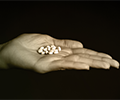Tag Archives: insulin
February 2023 Br J Cardiol 2023;30:12–15
Cardiorenal medicine – new targets, treatments and technologies
Karin Pola, Sarah Birkhoelzer

What’s new in transplantation Are kidney donors worse off? The meeting was opened by Dr Anna Price (Queen Elizabeth University Hospital, Birmingham) who addressed the long-term cardiovascular effects of unilateral nephrectomy in living kidney donors.1 Previous studies have shown a significant prevalence of cardiovascular morbidity and mortality in patients with chronic kidney disease (CKD),2,3 but the effects of reduced renal function in living kidney donors has been unexplored until now. A recent study by Price et al. demonstrated that living kidney donors had a reduction in estimated glomerular filtration rate (eGFR) from 95 to 67 ml/min

March 2018 doi:10.5837/bjc.2018.007
Older antidiabetic drugs
Emma Johns, Gerry McKay, Miles Fisher

(more…)

June 2013 Br J Cardiol 2013;20:56
In brief
BJCardio Staff

ESC backs regulations for medical devices The European Society of Cardiology has said in a position paper that it welcomes the European Commission’s (EC) proposals for a new Regulation to govern the evaluation and approval of medical devices in Europe as an important step towards improving patient safety. The EC proposal document is available at http://ec.europa.eu/health/medical-devices/documents/revision/index_en.htm New risk analysis scoring system A new risk scoring system, based on the SMART study, allows doctors to determine more accurately the risk of cardiovascular disease patients developing a new event, such as heart attack or str

October 2011 Br J Cardiol 2011;18:224-228 doi:10.5837/bjc.2011.003
Drugs for diabetes: part 7 insulin
Nicholas D Barwell, Gerard A McKay, Miles Fisher

Introduction Treatment with insulin is essential for a good prognosis in patients with type 1 diabetes, and it is a potent hypoglycaemic agent in patients with type 2 diabetes. Insulin is an anabolic hormone that influences vascular tone in both large calibre conductance vessels and small calibre exchange vessels such as the capillary microcirculation.1,2 In view of the increased burden of cardiovascular disease in patients with diabetes, and the capability of insulin to influence both metabolic and vascular function, insulin therapy has the potential to improve prognosis from cardiovascular disease in patients with diabetes. The metabolic ef
July 2009 Br J Cardiol 2009;16:163-6
New NICE guidelines on new treatments for type 2 diabetes
BJCardio editorial staff

Summary of therapies and key recommendations are: Insulin therapy (including the long-acting insulin analogues, insulin detemir, insulin glargine) Insulin detemir and insulin glargine, like NPH insulin, provide slowly-released insulin to meet basal requirements. When the decision to start insulin is made, human NPH insulin should be started; healthcare professionals should consider switching to a long-acting insulin analogue if the patient experiences significant hypoglycaemia, is unable to use the device needed to inject NPH insulin, or needs help to inject the insulin from a carer or healthcare professional, and for whom switching to a lo
March 2003 Br J Cardiol 2003;10:128-36
Antidiabetic drugs
Clifford J Bailey, Caroline Day

No content available

